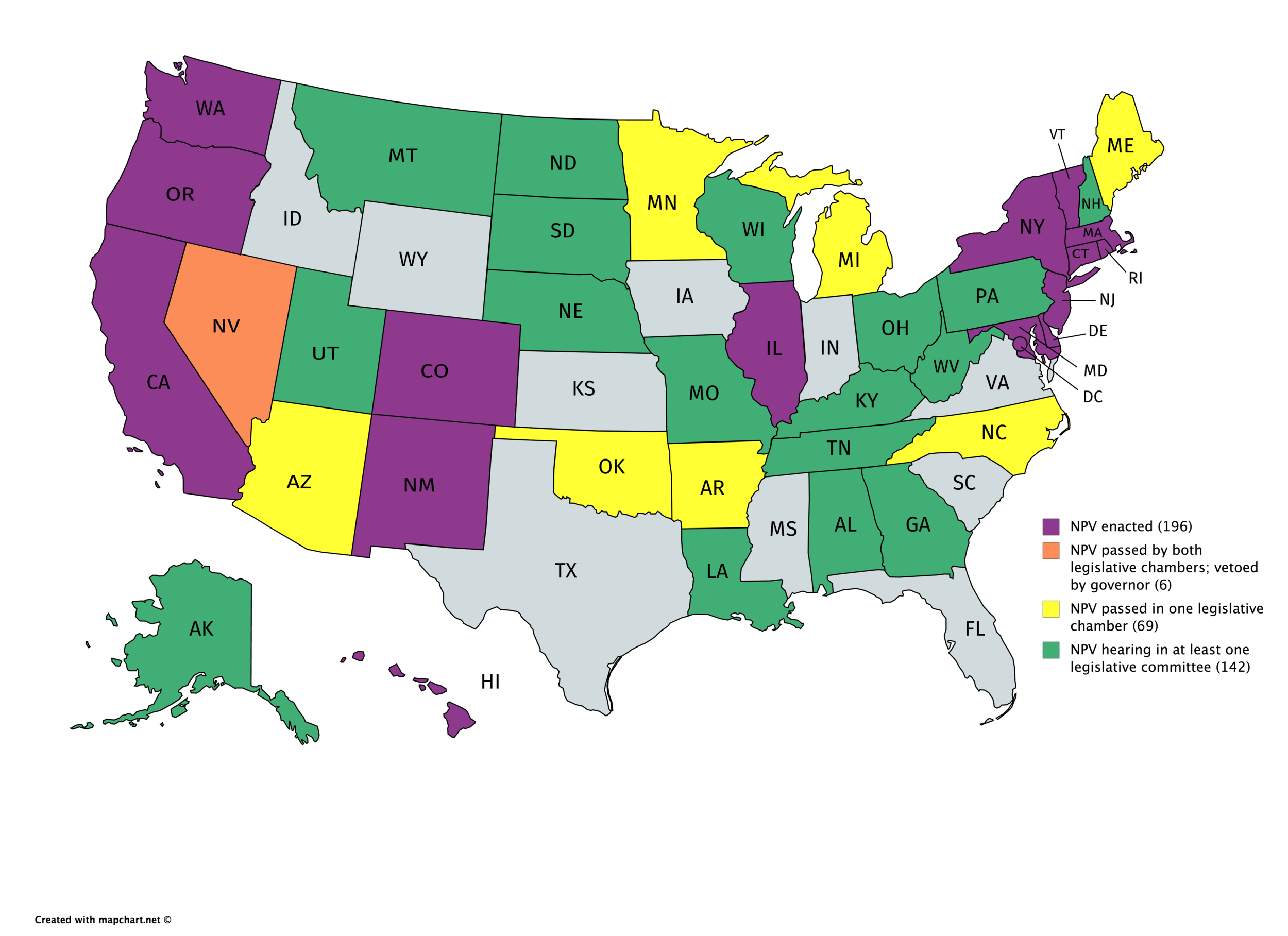In two out of the last five elections, the winner of the national popular vote lost the electoral college. This is not a fluke. According to a statistical model from Vinod Bakthavachalam and the Princeton Election Consortium, when the national popular vote is within a 4% margin, there is a 30% chance that the winner of the national popular vote will lose the election. And when the national popular vote is within a 2% margin, the chance of a clash between the national popular vote and the electoral college rises to 40%.
But what can we do about it? Some people believe that the only way to make sure that the winner of the national popular vote becomes the president is to change the constitution to abolish the electoral college. But there is another way to work within the system that the founders created and still respect the will of the people: the National Popular Vote Interstate Compact.
Here’s how the Compact works: The Constitution gives each state the power to award its electoral college votes as it sees fit. Right now, all states (except Nebraska and Maine) give their electoral votes to the plurality winner of that state. However, under the Compact, each member state will give its votes to the winner of the national popular vote.
The Compact will not go into effect until states with 270 total electoral votes join—the number needed to secure a majority of electoral college votes. Accordingly, the states will not award their electoral college votes to the winner of the national popular vote until there are enough electoral votes pledged to guarantee that the winner of the national popular vote also wins the electoral college.
The Compact already has 196 votes committed from fifteen states and the District of Columbia. That’s more than 70% of the way to guaranteeing that the winner of the national popular vote also wins the electoral college.
Under the current system, millions of people stay at home on election day because they know that their states’ electoral votes are a lock for one candidate or another. But if states with just 74 more votes join in, we can make sure that candidates pay attention to voters everywhere, not just those who live in swing states. The electoral college will sometimes favor Democrats and sometimes Republicans, but in the long run, everyone will be better off if every person’s vote counts equally.


